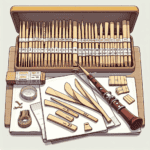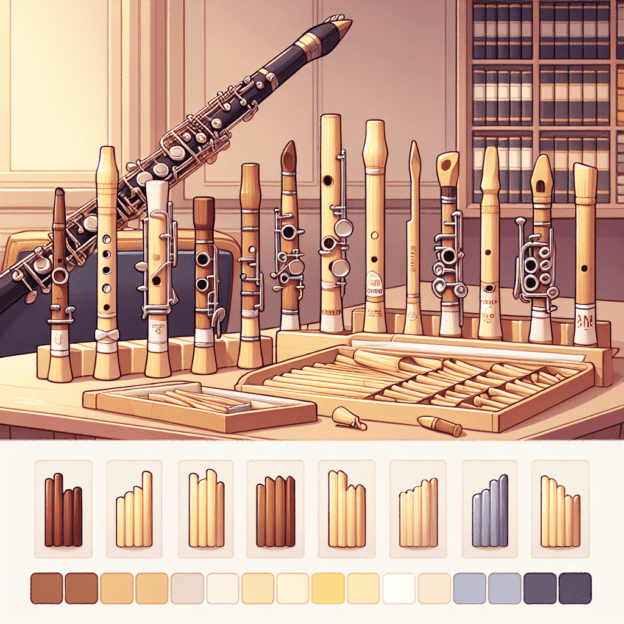Clarinet reeds play a crucial role in shaping the tone and playability of the instrument. As a key component of a clarinetist's toolkit, knowing about different reed types, their care, and their impact on performance can greatly improve a player's sound and experience. This post will cover various aspects of clarinet reeds, including types, selection criteria, and important tips for both new and seasoned players.
The Anatomy of a Clarinet Reed
Clarinet reeds are typically crafted from Arundo donax, a specific type of grass. The reed consists of two primary sections: the cane (the main body) and the heart (the thin, flexible tip). As air passes through the instrument, these two cane pieces vibrate against each other, producing sound. The reed's thickness and cut significantly influence the sound quality and the ease or difficulty of playing.
Types of Clarinet Reeds
When choosing a clarinet reed, players have several options:
- French Reeds: Known for their thinner profile and brighter tone, these are favored by many professional players for their responsiveness.
- German Reeds: These thicker reeds produce a darker, fuller sound, making them popular in orchestral settings.
- American Reeds: With varying thicknesses, these offer a middle ground between French and German styles.
- Plastic Reeds: Primarily used for outdoor performances, these durable reeds resist humidity changes but may not match the tonal quality of natural cane reeds.
| Reed Type | Characteristics | Best Suited For |
|---|---|---|
| French | Thinner, brighter tone | Professional players, jazz |
| German | Thicker, darker tone | Orchestral settings |
| American | Varied thickness | Versatile use |
| Plastic | Durable, humidity-resistant | Outdoor performances |
Reed Strength and Size
Reeds are available in various strengths, usually rated from 1 to 5 or higher, with lower numbers indicating softer reeds. Here's how strength affects playability:
- Soft Reeds: Easy to play and suitable for beginners, but may not offer the best tone balance.
- Medium Reeds: Provide a good balance between ease of play and sound quality.
- Hard Reeds: Preferred by advanced players for better projection and tonal qualities, but can be more challenging to control.
How to Select the Right Reed
Choosing the right reed depends on personal preference and playing style. Consider these factors:
- Your Skill Level: Beginners may find softer reeds easier to play.
- Playing Style: Jazz players might prefer different reeds than classical musicians. Try various strengths and brands to find your comfort zone.
- Reed Condition: Always check reeds for cracks, chips, or warping. Damaged reeds can severely affect performance.
- Brand Preferences: Martin Freres offers high-quality reeds. Experimenting with different brands can help you find the best fit for your style.
Maintenance of Clarinet Reeds
To extend reed life and ensure optimal performance, follow these maintenance tips:
- Moisture Control: Store reeds in a case to protect them from humidity changes. Consider a case with humidity control features.
- Cleaning: After each use, rinse reeds in water to remove saliva buildup, then allow them to dry properly.
- Rotation: Use multiple reeds rather than relying on one exclusively to maintain quality and longevity.
- Breaking in New Reeds: New reeds need a short breaking-in period. Gently soak them before playing and start with soft playing to soften the fibers.
Favorite Reeds Among Professional Players
Professional clarinetists often develop strong preferences for specific reeds. Here are some popular choices among top players:
- Vandoren Reeds: Known for consistency and variety, these are popular among orchestral players.
- La Voz Reeds: Often chosen for jazz playing due to their rich, warm sound.
- Rico Reeds: Favored by students and professionals alike for their affordability and availability.
Final Thoughts
Selecting the right reed is key to clarinet playing, affecting tone, playability, and overall performance. By exploring different types, strengths, and maintenance practices, clarinetists can significantly improve their playing experience.
With careful consideration and personal preference in mind, clarinet players can find true enjoyment in their instrument through the right reed selection—and with quality brands like Martin Freres, you're sure to find excellent options in the clarinet world.







